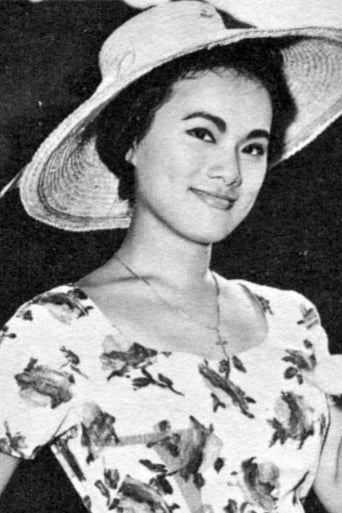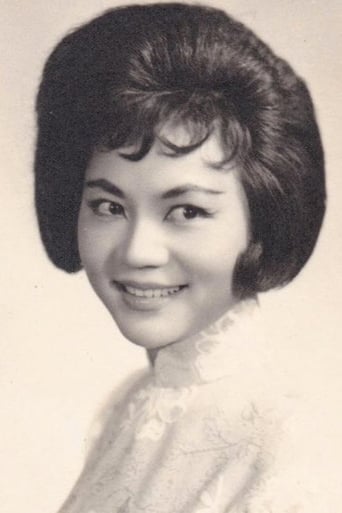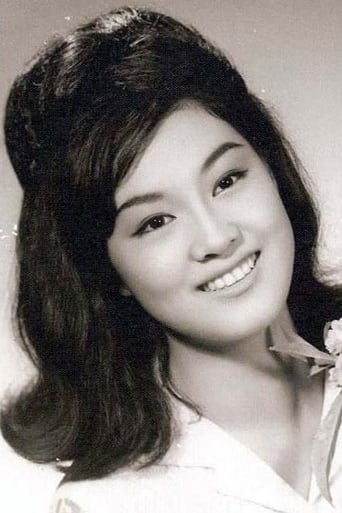Brian Camp
SONGFEST (1963) is a Huangmei Opera-style musical from Hong Kong's Shaw Bros. studio that's a bit different from the usual operettas the studio turned out. For one thing, it's about working people in the countryside and not about life at the imperial court. For another, the songs are not always designed to propel the narrative but are used in a kind of friendly competition between men and women to see who can out-sing the other. The film opens with a choral duel between the lovely ladies picking tea leaves on the hillside and their male counterparts coming back in their boats from a day of fishing in which they sing about whose work is more important and trade comical insults at each other. The lyrics are funny and the singing is just gorgeous. It's a beautiful scene filmed entirely on location. I daresay that in my ongoing quest to find an exemplary Hong Kong musical, this may just be the most accomplished and satisfying musical sequence I've yet seen in a Hong Kong movie. The main characters are Yu Lan, a headstrong tea-picking girl, and the boy who loves her, Chun Yang, a handsome, affable fisherman. She gives him a hard time at first—nearly always conveyed in song—but she eventually agrees to a wedding date. Things get complicated when Hu San Bao, a fat, bumbling "scholar" and son of a well-connected official, spots Yu Lan and makes a play for her. He uses his pull with the local matchmaker to set something up with Yu Lan's father, who refuses to go along. To avoid trouble, Yu Lan proposes a singing contest, in which she will trade verses with Hu San Bao and any challengers, knowing that Hu will lose and Chun Yang will win. Eventually, Hu San Bao and his entourage resort to unsavory means to stop the marriage and Yu Lan is forced to seek help from an unexpected quarter, leading to a round of confrontations in the final stretch.The singing contest, or rather a contest of "antiphonal singing," in which singers or groups of singers alternate verses, is conducted on a hillside by the water, with Yu Lan and her female friends standing on a hill overlooking the crowd of villagers below (well over a hundred) and facing her challengers stationed at a nearby pavilion or emerging from among the crowd. The smitten scholar, Hu San Bao, has recruited villagers with deformities to challenge her as well, including a dwarf and a hunchback, so that it will make him look good in contrast. Yu Lan sings back at all of them, including Hu and his associates, handily putting each of them down. When Chun Yang finally emerges and matches Yu Lan song for song, the crowd applauds heartily. It's quite a spectacular scene, as impressive in its own way as any martial arts battle provided in the studio's swordplay adventures of the time.Margaret Tu Chuan and Chiao Chuang are as attractive a pair of lovers as you'll find in a Shaw Bros. film of the time and their singing scenes are delightful. This may in fact be the best "musical" I've yet seen from Shaw Bros., simply because its musical numbers are like nothing else I've seen and are not derived from any familiar western musical styles. There's even a musical scene in the "sewing shed," where the girls sing while doing some stunning embroidery, so we get music and great artwork at the same time. Two future Shaw Bros. leading ladies, Chiao Chiao and Lily Ho, are seen among Yu Lan's friends. According to the DVD case (from Celestial Pictures' line of R3 releases of restored Shaw Bros. films), the film was shot on location at Taiwan's Sun-Moon Lake, where the scenery is quite picturesque. Add to this the beautiful costumes, sets, and color cinematography and you have a visual, as well as musical, treat from start to finish.Ultimately, it's fairly lightweight, fluffy, and predictable, lacking the drama, adventure and tragedy you often got in the Huangmei Opera films of the era. It's also, at 75 minutes, pretty short. But sometimes we Shaw Bros. fans just want a little light, beauty, color, music, and a happy ending, so it's nice to discover a film with just the right mix. Happy New Year!






